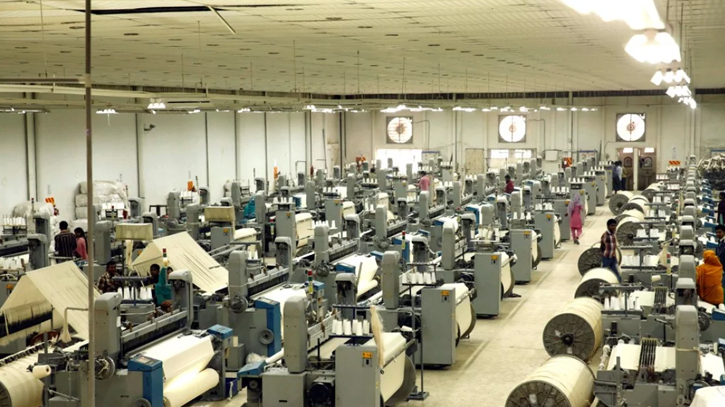
Photo : Collected
Due to stringent import regulations, there has been a 22 percent decline in the importation of goods and machinery from July to February. This has led to stagnation in business expansion, causing intolerable price hikes for products. Furthermore, businesses are unable to open Letters of Credit (LC) in accordance with demand.
According to Bangladesh Bank, capital machinery imports fall by 22 percent, capital goods by 21.3 percent and EPZ-related imports fall by 13 percent during the mentioned period.
Data shows machinery imports stood at $2.62 billion and capital goods at $4.67 billion from July-February. At the same time of corresponding years machinery import was $3.35 billion and capital goods $5.94 billion.
Meanwhile, garment goods imports were reduced by 10.1 percent. Of these, raw cotton imports declined by 30.1 percent, textile and articles by 7.0 percent, staple fiber by 5.1 percent, dyeing and tanning materials by 4.4 percent.
However, the Bangladesh Bank started import control in July last year to prevent the dollar crisis. Again, the duty is increased on the import of some products. As a result, LC opening and settlement continued to decline since July last year. Those concerned said that a further decrease in the opening of LCs means increasing stagnation in the economy.
“The purchasing capacity of the world has declined drastically. The decrease in goods import indicates that employment opportunities are also facing the crisis in the country consequently investment in the industry has been halted as well,” Dr. Ahsan H. Mansur, Executive Director of Policy Research Institute of Bangladesh told the Daily Messenger.
“After the withdrawal of lockdown, when work orders were poured in the country, I expanded my factories but due to import restriction imposed due to the dollar crisis, I cannot open the factories. Rather I have to pay the interest on loans,” Vice-president of the Knitwear Exporters and Manufacturers Association Fazle Ihsan Shamim talked to the Daily Messenger via phone about the present condition of the business.
“Currently, we are running only 60 percent of the capacity. Already, 40 percent of work orders have been declined. We are facing a multi-crisis. We cannot open LC due to the dollar crisis and suffering from a lack of power and gas.”
Due to the dollar crisis, the government and Bangladesh Bank have taken various steps to rein in the import of luxurious and unnecessary goods. Even after three months, the negative trend continues. The import of all products, including capital machinery and industrial raw materials, which are most necessary for setting up new industries, has decreased.
Economists believe that this trend will continue in the remaining months of the financial year. And it will hurt investment in the country. Industrial production will decrease. All in all, there will be a negative impact on the economy.
Messenger/Fameema








